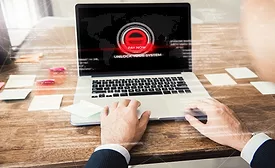Home » ransomware
Articles Tagged with ''ransomware''
Will 2020 be the cybersecurity wakeup call healthcare needed?
The pandemic exposed the need for hospitals to shore up security fundamentals and infrastructure, re-think incident response plans, and use tools rationalization to reduce coverage gaps.
June 1, 2021
Sign-up to receive top management & result-driven techniques in the industry.
Join over 20,000+ industry leaders who receive our premium content.
SIGN UP TODAY!Copyright ©2026. All Rights Reserved BNP Media.
Design, CMS, Hosting & Web Development :: ePublishing











